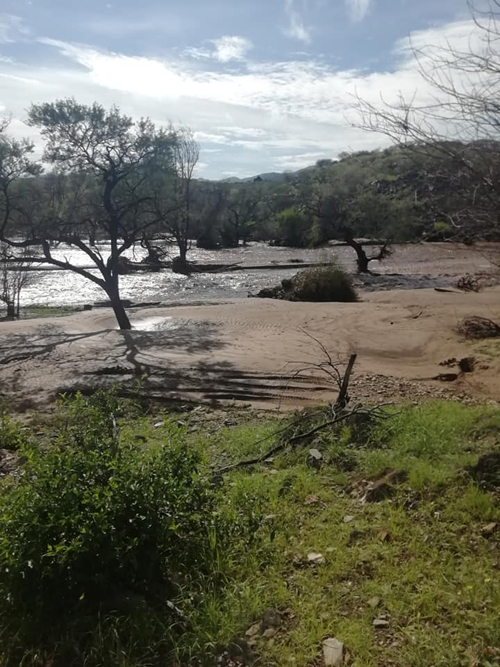The Kunene Transboundary Water Supply Project between Namibia and Angola, which was inaugurated in 2018 to address distribution to inhabitants along the common border, has resulted in reduced water system losses in the water transfer from Angola into Namibia.
This was announced by the SADC secretariat last week as part of an update on the joint water projects aimed to improve the availability of potable water and increase regional cooperation in the region.
The SADC secretariat reported a new water distribution network for Calueque in southern Angola has resulted in over 330 households provided with a clean and reliable water supply.
“The water transfer canal and pipeline repair works have ensured reduced system losses for the water being transferred across the border into Namibia.
The project has also ensured the provision of improved assurance of potable water supply to the Santa Clara community in this Angolan border town and is serving over 200 000 inhabitants overall when considering the different components of the KTWSP,” the secretariat stated.
The KTWSP is aimed at increasing the supply of water for drinking, agriculture, and industrial development for the communities and towns of southern Angola and northern Namibia.
The project has two major components: the Calueque-Oshakati trans-border pipeline and canal repair works, and water supply system to Calueque in Angola and the Angolan town of Santa Clara’s water supply system construction works.
Through increased regional cooperation, SADC has also facilitated the joint cross-border water supply project between Mozambique and Eswatini at the Lomahasha and Namaacha project.
This US$14 million (approximately N$211 million) project involves the development of a joint water scheme to allow potable water supply from Eswatini to be used by residents of Namaacha on the Mozambican side of the border.
SADC announced future plans are to develop dam infrastructure on the Mozambican side to meet increasing demand for water and this phase will also realise a reverse-transfer of water from the Mozambican side for use by the communities of Lomahasha on the eSwatini side.
The Chirundu cross-border water supply project between Zambia and Zimbabwe is another ongoing project located at one of the most important strategic developmental nodes in the region.
It will ensure the provision of clean and sustainable drinking water and sanitation services to both the Zambian and Zimbabwean border towns in Chirundu that experience huge volumes of traffic with the enhanced movement of traffic and people through this point.
It is estimated that over 70% of the 250 million people living in the SADC region rely on groundwater as their primary source of water. In this regard, the SADC secretariat committed to continue to implement groundwater management programmes through SADC-Groundwater Management Institution (SADC-GMI).
The Secretariat is also implementing small sub-grant groundwater infrastructure projects in member states under a project funded through support from the World Bank. So far, out of the target of 15 sub-grant pilot projects to be implemented in the SADC member states, two projects were completed in Malawi and Botswana.
Three other projects in Zimbabwe, Zambia and Eswatini are more than 80% complete.
“Seven additional projects in Angola, Lesotho, Mozambique, Namibia, Tanzania, and Zimbabwe are at various stages of completion. Seven additional projects in Angola, Lesotho, Mozambique, Namibia, Tanzania and Zimbabwe are at less than 50% completion rate, mainly due to implementation delays caused by lengthy government procurement processes,” the Secretariat indicated.
Furthermore, it announced the target of 3000 direct beneficiaries from the sub-grant projects by December 2020 has already been exceeded, as an estimated 25 300 beneficiaries have been recorded to date and 33 people have learned applied skills from the demonstration groundwater pilot projects out of the targeted 60 people by December 2020.
– anakale@nepc.com.na


